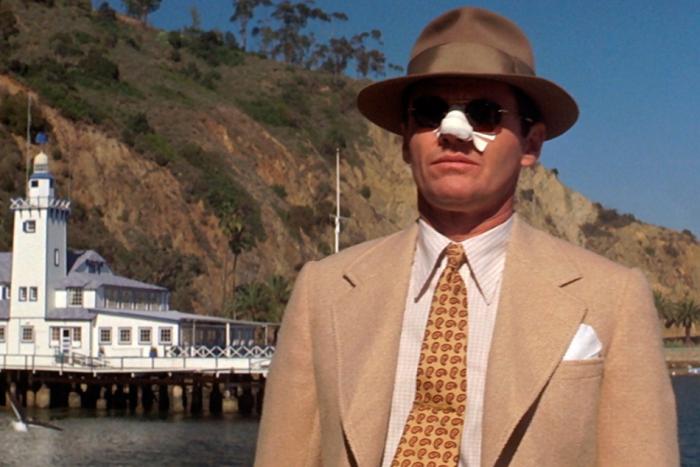The first time I walked into St. John in London it was 2005 and just a touch before noon. City Gentlemen were enjoying elevenses, which is a fine way to say washing down Lancashire cheese on Eccles cakes with a little glass of Claret, Fernet, or Champagne. For many it didn’t appear to be the first drink of the day. I liked that.
With the weight of discernment off my shoulders, I requested the wine list. But before I could choose, a rosy-cheeked somebody asked if I would like some Pol Roger and then introduced me to his wife. It was the Hendersons, parents of St. John proprietor Fergus. Over a couple hours we had a great conversation, lots of laughs, and few bottles. And then I went on my way.
Fast-forward eight years plus many subsequent visits and I’m back at the restaurant. But this time it’s to visit “Mrs. St. John” (aka: Trevor Gulliver) in order to talk Boulevard Napoleon, St. John’s new-ish winery in in the Minervois, South West France. The first person I see is of course Fergus’s dad, drinking champagne over lunch en tout son and wife. As it should be. And so, a quick glass of champagne—this time St John 1er Cru Blanc Des Blancs—before the task at hand.
I sit down with Trevor, and two bottles of Boulevard Napoleon Grenache Gris 2011 (the first vintage) later it became clear that he is thoughtful, engaging, and very cheeky. The guy has opinions.
And so in keeping with the delightfully uncompromising spirit of St. John, we’ve broken down that afternoon’s digressions into The Maxims of St. John Wineas told by Mrs. St. John himself:
1. It’s more difficult to find cheap wine because expensive wine is just a commodity.
St. John is for the everyman. It’s the street outside your door. It used to be like that in France. When you would go somewhere for lunch the wine by the glass would be A-Okay. It’s not like that anymore.
Good wine does not have to be expensive. It should be value at the price. A cheap rosé in the dappled sunlight of a summer courtyard is a joy. Maybe don’t take any home though; a bit like the straw donkey you bought that time in Spain. We now have our own bag-in-box wines, remove the glass and you get four bottles for the price of three. But use the savings on the quality and keep the white in the fridge.
We can source fine wines and there is a market that makes the price for them. Our choice is whether we buy or not, and of course we do, but we try to buy well.
We love Cabernet Franc, Pinot, St. Emilion and a good Champagne. The problem at the cheaper end is “commercial,” “manufactured” wines made to follow fashion not terroir. They are the equivalent of the glut of cheap product out of China.
2. We ascribe a rigor to ourselves.
We don’t step out of our rigour with the way we cook. We don’t make changes and we don’t compromise. We bake our own breads with no compromise in technique or materials. Same with our wines.
Eventually patience over time would mean there is enough people who will visit us understand what we do. And wine work is prosaic. Boulevard Napoleon is not separate; we didn’t want it under the badge of St. John. We wanted it to stand up on it’s own. And making our own wines in collaboration with vignerons and now even, serendipitously, having our own winery came out of the problem we faced bringing in value for money bottles.
I believe all work is political and all work has to be responsible socially. Or you might as well be a boy band.
3. This “business” of natural wines is twerpery.
Fifteen years ago certain wines we were carrying were considered “natural” in the truest sense. And for a reason I cannot explain they no longer carry that moniker. And so now I have put a little “U” next to the wines, as apparently people must know they are unnatural. To me this “movement” seems quite unnatural and ambiguous at best. I mean 2-buck chuck… at least that is honest.
4. “Wine Bars” are dubious
That there are new “wine bars” is all to the good but they seem to head into a kind of cul-de-sac of farmed salmon with the brown bread triangles, yuck olives or worse, populated by wine geeks sadly on both sides of the counter. Joe Public might not be saying or know anything but he’ll not order again nor come back.
The larger vision should deliver good food and enthusiasm throughout the day and no pomposity or tunnel vision with product. Should simply be a good bar to enjoy, one that majors in wine but is delighted to serve a G&T or cleansing ale. They must have wines on the pump and not knowingly sell “natural” wines that may be of anorak interest. You strangely need to create a bar that is not a “wine bar.” (All this being said, we do have some good spots and things are better than they were.)
5. The St. John wine list is exclusively French.
And the reason for that is very simple: They are our neighbours. Always better to buy over the fence when you can. I’m not a fan of fluids in expensive glass travelling the world particularly when it is price-point industrial stuff for the supermarkets.
On a practical note, we can work directly with farmers in France. We build up long-term relationships with our neighbours, whereas an agent is only interested in the product if they can sell it, and the easier the better. And besides, when we are out in the fields a good and jolly lunch is always assured. On the food side of things, no one goes into a restaurant that has an “international menu” (well yes, I guess some do, like a hotel or tourist resto) so why are folks so happy with a wine list that is the equivalent? We have a real depth of knowledge of one country that is wide and profoundly varied. One good Burgundy can lead to another, maybe a Côte becomes a Vosne-Romanee, for example. Don’t want to dart half way around the planet when one is on such a happy journey.





